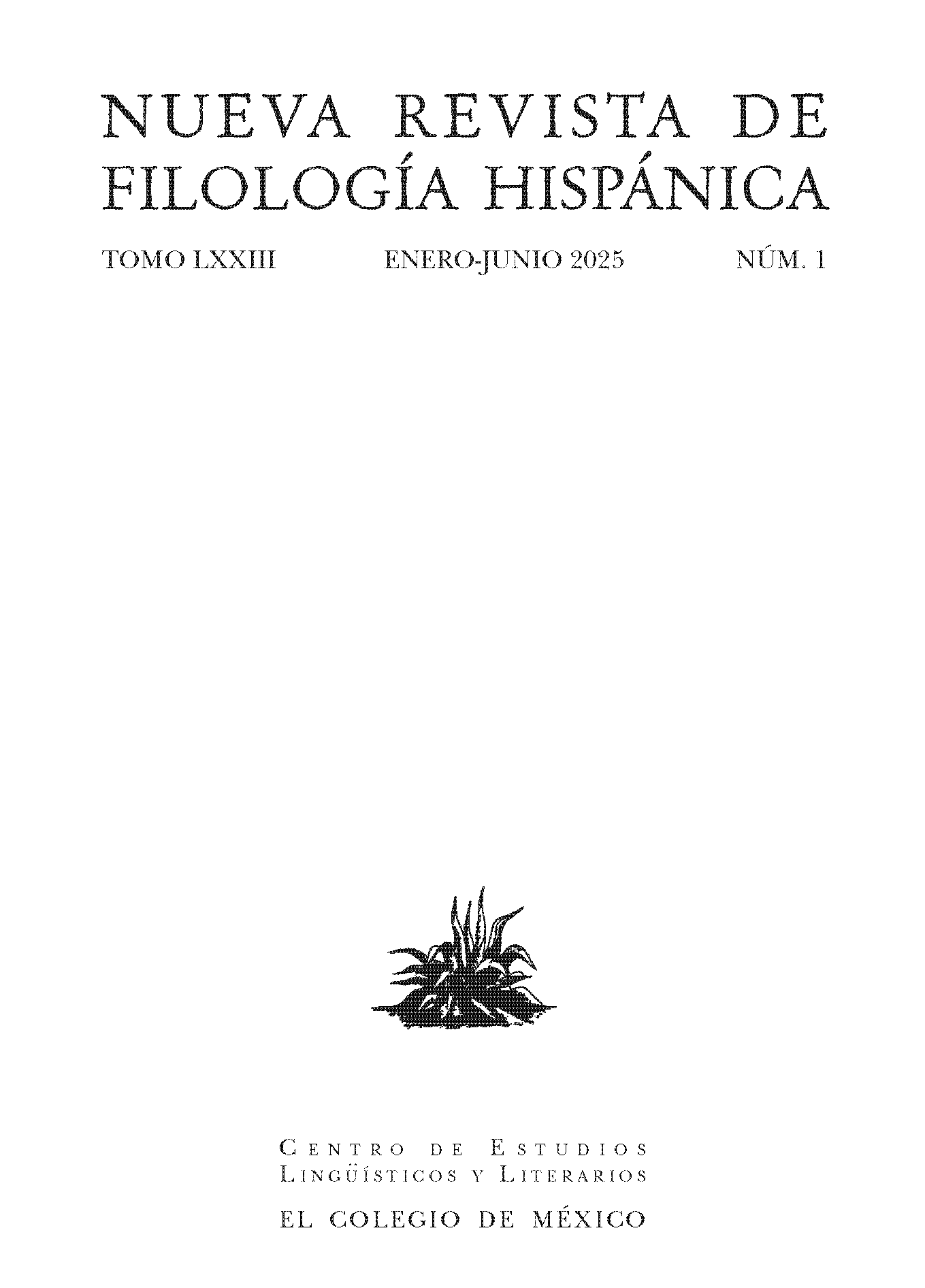La auctoritas como bien relacional. La imagen de autor de Carlos Pujol en su correspondencia con otros escritores
DOI:
https://doi.org/10.24201/nrfh.v73i1.3977Palabras clave:
autorialidad, imagen de autor, correspondencia entre escritores, estudios autoriales, literatura española contemporáneaResumen
La auctoritas de un escritor, entendida como prestigio entre los pares, constituye un modo de reconocimiento social que es necesario distinguir de la notoriedad o visibilidad pública. Me propongo mostrar que la auctoritas así entendida es un bien relacional que surge en el ámbito de la sociabilidad privada, y comprobar los motivos y modos de otorgarla. El análisis de la correspondencia del escritor Carlos Pujol (Barcelona, 1936-2012) con los también escritores Ramón Carnicer, Vintilǎ Horia, José Luís Olaizola y Manuel Longares revela que los motivos por los que se atribuye auctoritas a la imagen de autor de Pujol se alimentan de los valores literarios y personales compartidos entre los corresponsales.
Descargas
Publicado
Cómo citar
-
Resumen466
-
PDF239
-
LENS4
-
XML219
Número
Sección
Licencia

Esta obra está bajo una licencia internacional Creative Commons Atribución-NoComercial 4.0.
Nueva Revista de Filología Hispánica (1947-), volumen 67, N° 2, julio-diciembre 2019, es una publicación semestral editada por El Colegio de México, Carretera Picacho Ajusco 20, Ampliación Fuentes del Pedregal, Tlalpan, C.P. 14110, Ciudad de México, México, Tel. (55) 5449-3000, http://nrfh.colmex.mx/index.php/NRFH, nrfh@colmex.mx. Director: Pedro Martín Butragueño. Editores responsables: Alejandro Rivas y Jesús Jorge Valenzuela. Reserva de Derechos al Uso Exclusivo No. 04-2015-070112341900-203, ISSN (impreso): 0185-0121, ISSN (electrónico): 2448-6558, otorgados por el Instituto Nacional del Derecho de Autor. Composición tipográfica: El Atril Tipográfico. Responsable de la última actualización de este número: Perla Reyna Muñoz; fecha de última modificación: 19 de junio de 2019.
El contenido de los artículos publicados es responsabilidad de cada autor y no representa el punto de vista de El Colegio de México. Se autoriza cualquier reproducción parcial o total de los contenidos o imágenes de la publicación, incluido el almacenamiento electrónico, siempre y cuando sea sin fines de lucro o para usos estrictamente académicos, citando invariablemente la fuente sin alteración del contenido y dando los créditos autorales.










